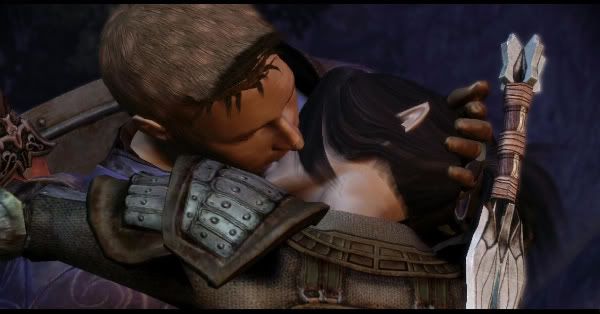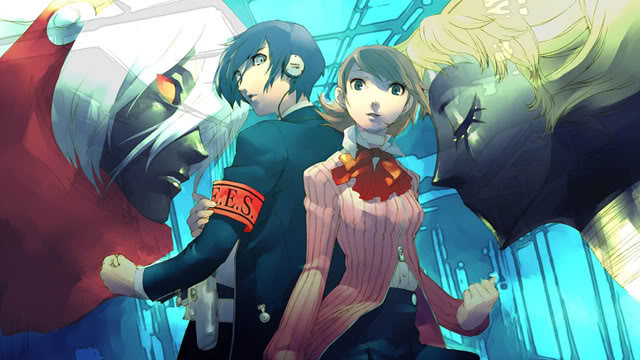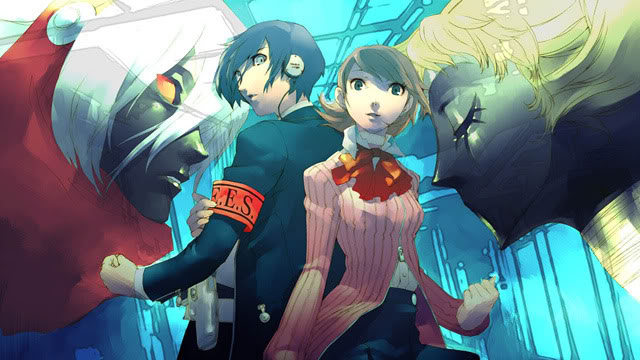Oh god, not the Lady Gaga song.
I stumbled upon the Digital Romance Lab last week via Rock Paper Shotgun’s Sunday Papers. As writer Jim Rossignol suggests, Digital Romance Lab's "On Simulation, Science, and Love" is a beautiful post, so I wholeheartedly suggest you read it. More than that, it provides some context for this article.

There’s one bit in that post that intrigued me — a bit that is obvious but has interesting implications if taken at face value.
“Games create meaning through the gap between its rule-based procedures and the player’s subjective response. This is what Ian Bogost calls the simulation gap; therefore, in playing video games, we are able to critically reflect…to learn something about not just the game’s creator but about ourselves.
"Videogames are, then, excellent tools by which we can explore what it means to be human…to help us to explore and unravel our subjective selves.”
Earlier, the post stipulates that the novel Pride and Prejudice allows the reader to learn something about author Jane Austen, how she saw the world, and (more specifically) how she saw romance. Objects like books are ”expressions of the way we see the world or (at least) of how we want to represent it.” Unlike books, though, games are structured, easily quantifiable, objective-based systems. Romance often follows suit in that regard. Games tend to enumerate or somehow represent exactly where you stand with a possible love interest.
This is where one might be inclined to criticize such a dehumanizing, inaccurate representation of romance. How can a game like Dragon Age: Origins, for example, give you a special achievement for sleeping with specific characters? What does that say about how BioWare sees such passion? Further, what does that say about what they think we want out of a romance?
It’s here that my mind recalls a recent conversation with a friend regarding relationships. He made a crack about how girls tend to look at the title "girlfriend" as an objective that rewarded them with a type of "ascension," a type of elevation in both status and treatment. Romance unlocked! +5 kisses, +10 cuddles, etc.

This came to me as a shock, initially. I’m not much for titles myself; I’m not sure I ever see myself getting married. What does a title or piece of paper prove, after all? Neither is necessary to have an understanding of monogamy if such is your thing. Thus, I can’t help but wonder if its function is primarily a social one, like achievements (evidence of your skill and accomplishments to your peers). And yet for me, the title had a facade…an expectation that came with it. An implied level of intimacy — we’re not talking purely physical here — which was exclusive to the title.
The expectation is somewhat furthered when I play games. Most of the time, I obsess over the romance aspect of these experiences. At first, this worried me: Am I some maladjusted, socially inept person or something? Perhaps! But I also realized it wasn’t just me, it’s the way some of the relationships are structured.
If I wanted to get to know someone better or experience intimacy, then romancing them was inevitable. A requirement, even. In Persona 3, getting to know any girl meant you were making her your girlfriend. There is no other choice. In Mass Effect, being cordial to others is the same as courting them. Romance unlocked! +5 deep conversation. Congrats.
Often times, even when I’m not shoehorned into a relationship, I still seek it out anyway; I can’t help but feel like writers only allow you to know characters best if you pursue their love. A level of intimacy that is exclusive to the romance.

I also can’t help but think about the seemingly rat-raceish nature of it all: finding "the one," settling down, getting married by age 30ish, having a kid, and what have you. Do it, and you’re playing the game right: You’re winning. Love becomes a marker of a successful maturity into adulthood; as the New York Times puts it, ”Sociologists traditionally define the 'transition to adulthood' as marked by five milestones: completing school, leaving home, becoming financially independent, marrying, and having a child.”
Of course, what that article ends up conceding is that we're currently redefining such milestones and the ways we go about achieving them. Some might acknowledge this as an inevitability given how archaic and arbitrary they are as markers of…anything. Will we start seeing this cultural shift reflected in games?
By no means am I implying this is a standard parsing of the human experience. Not everyone treats life as a series of achievements. Nonetheless, it’s interesting to look at that approach when thinking about the way games position love — can we truly say it’s a completely off-base representation, structurally speaking? Or is it actually representative of the "real" underbelly of love? Let us not forget that romance doesn’t have to be structured as just another game mechanic.
Originally posted at Nightmare Mode, a game blog where Patricia tends to house her ramblings.



